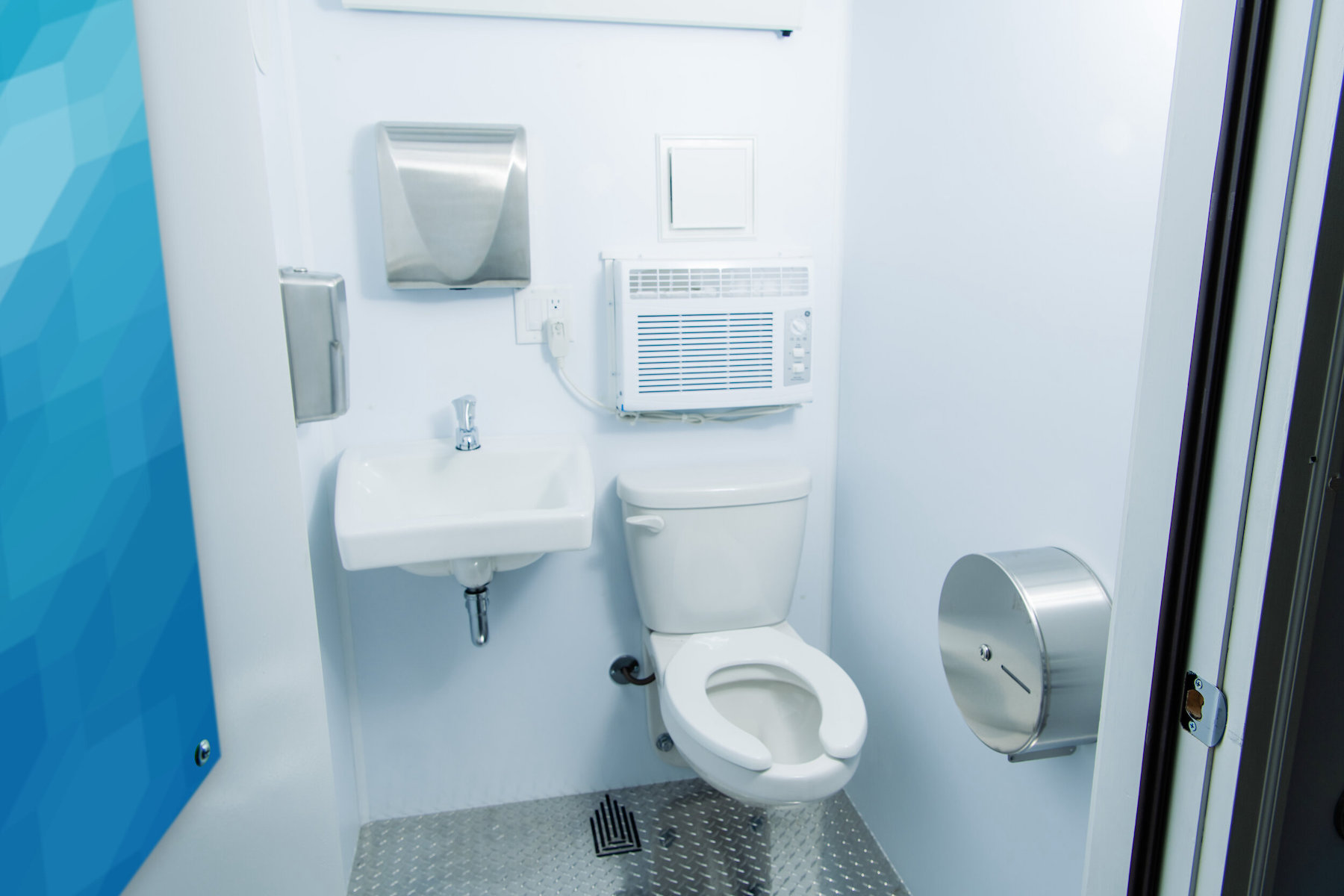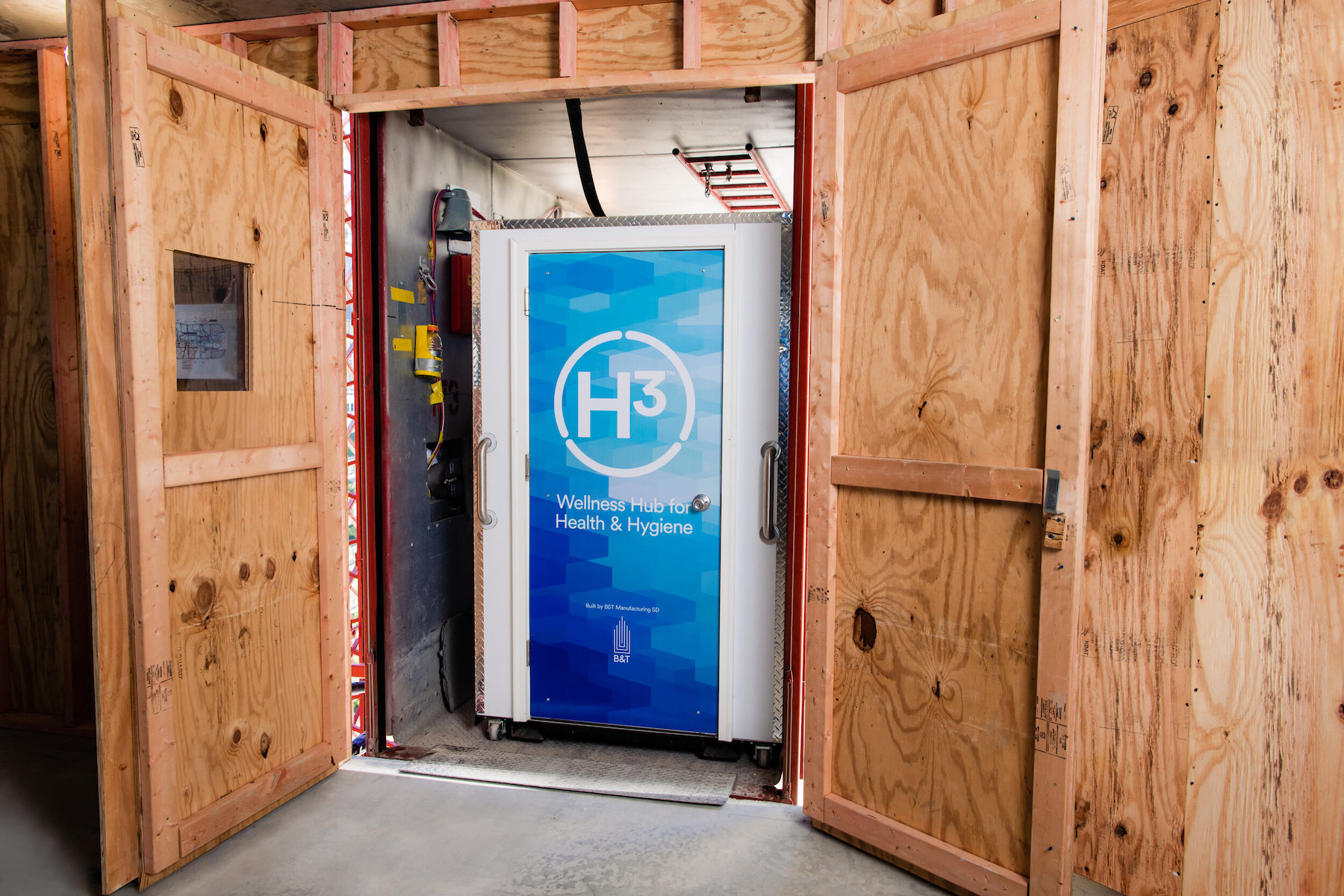Some contractors are packing up their portable potties and instead using the H3 Wellness Hub.
As part of its efforts to improve employee wellness and jobsite conditions, Lendlease, a global real estate and investment group, has developed a product innovation called the H³ Wellness Hub. It’s less of a portable potty, more of a movable restroom.
First launched in 2020, the H3 Wellness Hub comprises an enclosed, climate-controlled space that connects directly to sanitation, fresh water, and electrical utility risers. Each H³ Wellness Hub includes its own HVAC, hot water, natural lighting, and porcelain fixtures, as well as optional UV protections to combat germs and bacteria. In addition, the H3 Wellness Hub can be cleaned with traditional cleaners, rather than the harsh chemicals typically used for portable toilets.
At about 60” long, 49” wide, and 82” high, the H3 Wellness Hub is small enough to fit on a manlift. The modular bathroom system, which weighs 1,200 pounds, can be hoisted into place with a crane, and its built-in wheel system can easily roll and lock into place. The hubs can connect together vertically or horizontally.
With the H³ Wellness Hub, workers enjoy not only a more comfortable environment but also a more productive and efficient environment, with fewer trips up and down elevators, Lendlease says. Lendlease has been marketing the hubs to other general contractors.
In Chicago, Lendlease recently used 16 hubs while constructing Cirrus and Cascade, two multifamily towers nearing completion in the Lakeshore East neighborhood. Lendlease also put the hubs to use at The Reed at Southbank, a 440-unit hybrid residential building on South Brach of the Chicago River.

Related Stories
| Aug 11, 2010
Platinum Award: Reviving Oakland's Uptown Showstopper
The story of the Fox Oakland Theater is like that of so many movie palaces of the early 20th century. Built in 1928 based on a Middle Eastern-influenced design by architect Charles Peter Weeks and engineer William Peyton Day, the 3,400-seat cinema flourished until the mid-1960s, when the trend toward smaller multiplex theaters took its toll on the Fox Oakland.







